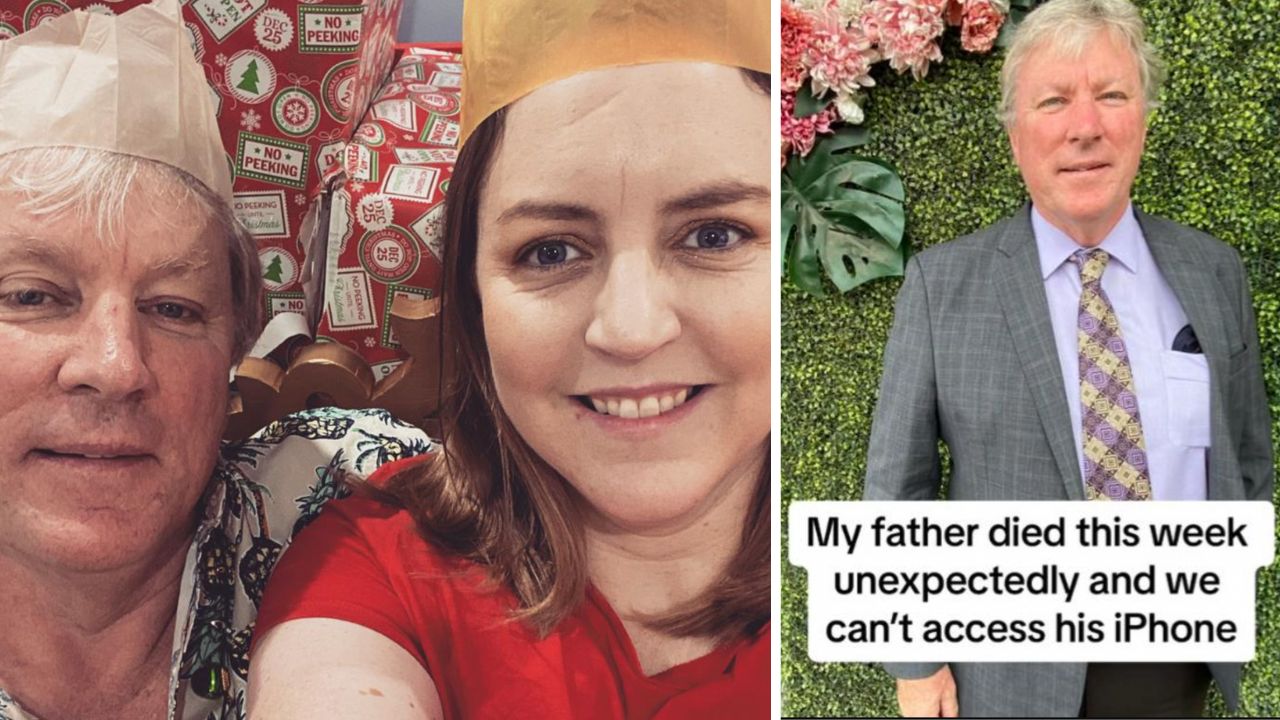Daughter stunned by little-known iPhone feature after father's sudden death

Queensland woman Carrie Payne was unable to access her father's phone after he died unexpectedly last month due to Apple's policy.
The policy is that devices locked with a passcode and therefore protected by passcode encryption, cannot be accessed without erasing the contents on the device.
Apple has refused to create software to hack into the iPhone for security reasons, and for grieving families who don't have access to their loved one's phones, this could mean that hundreds of photos and memories could be lost.
After losing her father unexpectedly from intracranial haemorrhage, Payne did not have access to his phone, which made it difficult for her to contact his friends and colleagues to inform them of his death.
“We also then couldn’t use any of the family photos he may have had on there in his funeral service,” she said.
“In the end, we are at peace with things now and haven’t pursued anything. We may still investigate this once we have all the legal documents to confirm his passing/the terms of his estate, but we are weighing this up with his right to privacy in death. The immediacy of needing access has gone, so we are instead focusing on remembering him.”
While she has tried almost everything to gain access to the phone, she has had no luck, and now she wants to prevent the same thing from happening to someone else.
Payne, an estate planning lawyer, shared the little-known iPhone feature, called a Legacy Contact.
This can be set for your Apple ID on an iPhone (starting from iOS 15.2), iPad (iPadOS 15.2) and Mac (macOS 12.1).
The Legacy Contact gets access to data stored in your Apple account after your death including iCloud photos, contacts, calendars, messages, mail, voice memos, notes, files stored in iCloud drive, apps you have downloaded and device backups.
But, data like payment information and passwords remain off limits.
To add a Legacy Contact on your iPhone or iPad, you go to settings, tap your name, tap sign-in & security, and then tap legacy contact.
On a Mac, click the Apple menu, then system settings, then Apple ID, then sign-in & security, and legacy contact.
After your death, your Legacy Contact will need the access key that you generate when you choose them as your contact and your death certificate.
The Legacy Contact will have access to your data for three years from when the first legacy account request has been approved.
In Australia, next of kin can request access to an account with the right legal documentation if they don't have a Legacy Contact access key.
Images: Carrie Payne
